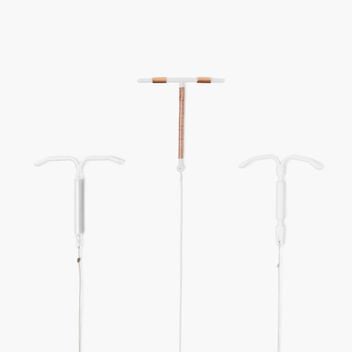How safe is the birth control pill?
The birth control pill is safe for most people, but all medicines have some risks and side effects. Your doctor will help you figure out if the pill is safe for you.
Is the birth control pill safe?
There’s a good chance the pill will be totally safe for you — most people can take it with no problems. The pill has been around for more than 50 years, and millions of people have used it safely.
Can I take the birth control pill?
Like all medicines, the pill isn’t for everyone.
Smoking and birth control pills don’t always mix.
- If you smoke 15 cigarettes a day or more, don’t use the combination pill (COCs) or any other kind of birth control that has the hormone estrogen.
- If you smoke fewer than 15 cigarettes a day or vape nicotine at all, talk with your nurse or doctor about whether the combination pill is safe for you.
Smoking while taking birth control with estrogen (like combination pills, the patch, or the ring), makes you more likely to have problems like a stroke or heart attack.
You can take progestin-only pills (POPs or mini pills) if you’re a smoker. You can also safely use any other method without estrogen — like the birth control shot, the birth control implant, and IUDs.
Also avoid using combination pills if you’ve had:
-
Blood clots, an inherited blood-clotting disorder, or vein inflammation
-
Heart attack, stroke, angina, or other serious heart problems
-
Migraine headaches with aura (seeing flashing, zigzag lines)
-
Uncontrolled high blood pressure
-
Very bad diabetes or liver disease
Avoid using progestin-only pills if you’ve had:
-
Certain forms of lupus
Avoid using Slynd (a type of progestin-only pill) if you’ve had:
-
Kidney disease
-
Adrenal insufficiency
-
Liver disease
Talk with your doctor or nurse about your health history. They’ll help you decide if the pill is right for you.
What are the risks of birth control pills?
Even though birth control pills are very safe, using the combination pill can slightly increase your risk of health problems. Complications are rare, but they can be serious. These include heart attack, stroke, blood clots, and liver tumors. In very rare cases, they can lead to death. For the most part, progestin-only pills (aka POPs or mini pills) don’t have these risks.
When talking with your doctor about birth control, tell them about any medications you’re taking and any health problems you’ve had.
There’s a very slight chance that you can get pregnant even if you always take the pill correctly every day. But if you do get pregnant and accidentally take the pill during the early part of your pregnancy, it won’t increase the risk of birth defects.
It’s important to remember that the chance of having any of these problems while taking birth control pills is really, really low for most people. In fact, pregnancy is more likely to cause serious health problems than the pill. Your doctor or nurse can help you figure out which types of birth control will be safest for you.
What warning signs should I know about?
Most people on the pill won’t have any problems at all. But just in case, it’s good to know what the signs of a serious issue are.
See a doctor or nurse right away if you have:
-
sudden back/jaw pain along with nausea, sweating, or trouble breathing
-
chest pain or discomfort
-
achy soreness in your leg
-
trouble breathing
-
severe pain in your belly or stomach
-
sudden, very bad headache
-
headaches that are different, worse, or happen more often than usual
-
aura — (seeing flashing, zigzag lines)
-
yellowing of your skin or eyes
You can always call a nurse or doctor, like the ones at your local Planned Parenthood health center, if you have questions or you’re worried about any health issues.
Is it safe to take the pill while breastfeeding?
Combination pills (COCs) may reduce the amount and quality of your breast milk in the first 3 weeks of breastfeeding. If you’re nursing, wait at least 3 weeks after giving birth to start using combination pills. Your breast milk will contain traces of the pill's hormones, but it’s not likely that these hormones will have any effect on your baby. Talk with your nurse or doctor if you have any concerns about breastfeeding while using the pill.
Progestin-only pills (AKA POPs or mini pills) are fine to use while you're breastfeeding. In fact, using the mini pill and breastfeeding shouldn’t have any effect on how much milk you produce, and won't affect your baby.
 Abstinence
Abstinence
 Breastfeeding
Breastfeeding
 Cervical Cap
Cervical Cap
 Condom
Condom
 Diaphragm
Diaphragm
 FAM
FAM
 Female Condom
Female Condom
 Implant
Implant
 IUD
IUD
 The Patch
The Patch
 The Pill
The Pill
 The Ring
The Ring
 The Shot
The Shot
 Spermicide
Spermicide
 Sponge
Sponge
 Sterilization
Sterilization
 Vasectomy
Vasectomy
 Withdrawal
Withdrawal